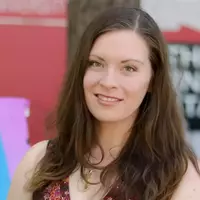Implementing the Geoscience Education Research Project as a Poster in Intro Courses
Leaders
 Katherine Ryker, University of South Carolina-Columbia
Katherine Ryker, University of South Carolina-Columbia
 Karen Kortz, Community College of Rhode Island
Karen Kortz, Community College of Rhode Island
Demonstration
We will share our lessons learned in transitioning the final product for this project from a set of oral presentations to posters. This will include poster rubrics, templates, resources that have been developed at each campus (e.g. citation guides, instructions for how to mine both peer reviewed literature and popular press articles), practical strategies for implementation, and examples of student work. We will also share an activity designed to help students identify what makes an effective poster.
Abstract
Students complete a scientific research project including asking a question, developing methods, collecting data, analyzing and interpreting data, and communicating results as described by Karen M. Kortz here. The research question begins "What do other students think about _____" and students fill in the blank with a topic that interests them from the class. Although it is geoscience education research, it involves students in the process of science while learning about a topic of their choosing, making it an effective learning tool for all students.
At the end of the semester, students share their results in the form of a poster session. Each student (or student group) prepares a poster that includes their research findings and the scientific ideas behind their topic. At one school, students also draw from popular press articles to make their topic as locally relevant as possible.
The goal is to have students learn the process of science while learning a topic of their choosing, which will vary by student. Outcomes include developing skills of analyzing data, synthesizing ideas, evaluating results, generating conclusions and recommendations, critiquing peer work, presenting, and working in groups.
Context
This activity is being used at two colleges in Spring 2018.
Karen's description: I use this activity in my Historical Geology intro classes (15 students) as individual projects at the Community College of Rhode Island (2YC). We used lab time for the discussions. The final product is a poster symposium.
Katherine's description: I use this activity in my Environment of the Earth (environmental geology) intro class as a group project at the University of South Carolina (R1). 60 students are divided into groups of 2-5 based on their shared interests. Lecture and lab time is used. The final product is a poster symposium.
Why It Works
This activity allows introductory undergraduate students to participate in a course-based undergraduate research project. This project has been shown to be effective and beneficial to students by increasing knowledge related to the class, positive affective responses, soft skills development, presentation skills and confidence, improve science skills, understand and appreciate science and scientists (Kortz and van der Hoeven Kraft 2016). Participating in this project gives students opportunities to dive deeper into a topic that interests them, practice communicating to different audiences and share the wonders of geoscience, and learn how important geoscience education is at all levels.
Want to use this in your class? Check out these examples and rubrics!
Photos and attributed work have been shared with permission.
- Program for day of presentations (includes timeline for an exam block) (Acrobat (PDF) 162kB Aug6 18)
- Final research poster description and rubric from Kortz. Students were given this towards the beginning of the semester. (Acrobat (PDF) 29kB Aug6 18)
- Final research poster rubric from Ryker. Students were given this towards the beginning of the semester. (Acrobat (PDF) 552kB Aug6 18)
- Student Examples' (without access to a large format printer)
- Student [file 187761 'Example 1 (Acrobat (PDF) 1016kB Aug6 18) and Example 2 (Acrobat (PDF) 529kB Aug6 18) (with access to a large format printer)


![[creative commons]](/images/creativecommons_16.png)

